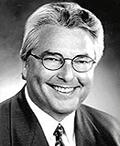Return of the Cold War: Tinker, Tailor, Soldier, Spy
Recently by Eric Margolis: What Is Really Going On in Syria
Writing about films is not something I often do, but as an old Cold Warrior who has covered intelligence matters for decades, the subject matter of the thrilling book Tinker, Tailor, Soldier, Spy is right up my dark alley.
John Le Carré's Cold War espionage trilogy, which also includes, The Honorable Schoolboy and Smiley's People, is the finest work on the world of intelligence ever written. Le Carré served in Britain's Secret Intelligence Service, MI6, and knows of what he writes. He masterfully captures all the bureaucratic tedium and moments of terror of spy work, its lies, double-dealing, and betrayals.
The 1976 BBC TV version of Tinker, Tailor and the sequel, Smiley's People, was the best thing I have ever seen on TV. It was perfect. Full stop.
John Le Carré stated the BBC version was "complete" and should not be remade. I felt the same way, fearing that a remake would inevitably disappoint.
A remake should at least bring new depth or contemporary sensibility. Alas, the 2011 Anglo-French film version by director Tomas Alfredson detracts rather than adds to this epic tale.
Don't get me wrong. The film is well made and interesting. But it has tried to compress Le Carré's large cast of fascinating characters and murky, jig-saw puzzle of patient detection into an all-too-brief two hours.
Inevitably, the film produces only one finely-etched character, Smiley, very well played by a somber Gary Oldman. But trying to follow the genius of Alec Guinness, who played Smiley for the BBC, is an impossible act to follow.
Sadly, the other wonderful characters in the BBC series that Le Carré brought to vivid life become mere cardboard cutouts in the film. The slippery Hungarian chief of the Lamplighters, Toby Esterhase; Bill Hayden, the charming seducer of one and all; insufferably pompous Sir Percy Alliline; gruff, chain-smoking Roy Bland; and Jim Prideaux, betrayed on a mission behind the Iron Curtain by the man he loved.
Having grown up in New York's theater world, I've seen many moments of memorable drama, but none more so than the wonderful scene in the Smiley's People where Toby Esterhase kidnaps a Soviet diplomat played with consummate skill by the Anglo-French actor Michael Lonsdale. Watching Smiley slowly, relentlessly deconstruct the blustering Soviet official into a blubbering mess is one of cinema's supreme scenes.
Sadly, it's not in the film. Nor is the shadowy Karla, grand spymaster of Moscow Center. Maybe a sequel to the new film?
Viewers of the new film won't understand the great underlying drama of the Philby treason. The fictitious Philby-like character, Bill Hayden, weakly played by Colin Firth, only hints at the monster treachery that lies beneath.
The real Philby, a gifted son of Britain's elite who grew to hate the West, became a senior figure at British intelligence and its liaison with CIA in Washington. Philby betrayed scores of Western operations and hundreds of agents behind the Iron Curtain, all of whom were executed, including a relative of mine.
Equally damaging, Philby convinced CIA's powerful chief of counter-espionage, James Jesus Angleton, that the Agency was riddled with KGB moles. As a result, both MI6 and CIA were, to use Le Carré's term, "turned inside out" and crippled by frantic witch hunts and galloping paranoia.
Philby and his fellow spies in Britain's establishment, known as the "Cambridge Five," are generally considered the most destructive Soviet agents of the era.
But when I was invited into the KGB's top secret museum in Moscow, the curator assured me that George Blake, who was not part of Philby's coterie, had been, in fact, the most effective Soviet spy in Britain. Reading Blake's notebooks made me feel ice cold.
 In Smiley's People, Smiley and his old team hunt and then trap Karla through his one human weakness, his daughter. In reality, I saw something eerily similar happen to one of the very top Soviet leaders in the 1970's.
In Smiley's People, Smiley and his old team hunt and then trap Karla through his one human weakness, his daughter. In reality, I saw something eerily similar happen to one of the very top Soviet leaders in the 1970's.
As an old Cold Warrior, I do miss the thrill and drama of the conflict each and every day. The Soviets were redoubtable, worthy foes. As Japanese samurai used to say, honor in battle is commensurate to the might of your enemy.
Thank Le Carré for keeping these exciting memories alive.




